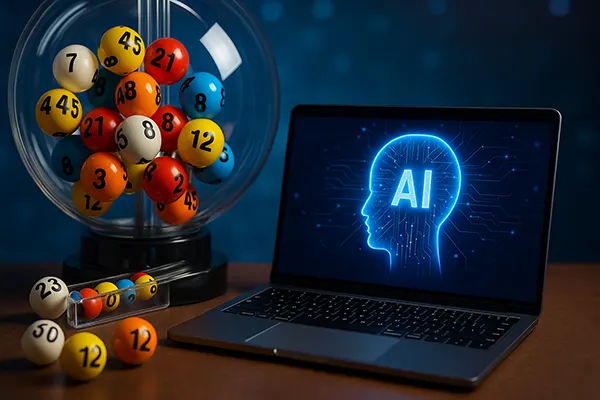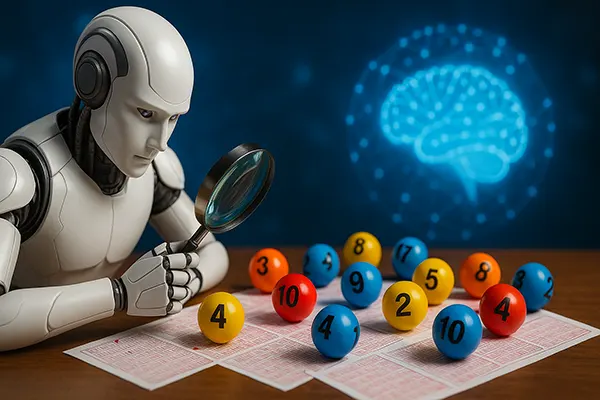
How Artificial Intelligence is Transforming Modern Lotteries: From Number Generation to Fraud Detection
Artificial intelligence (AI) is rapidly reshaping many industries, and the lottery sector is no exception. By integrating advanced algorithms, machine learning, and predictive technologies, lotteries around the world are becoming more transparent, secure, and engaging. The use of AI ranges from fair number generation and personalised user experiences to sophisticated fraud detection systems that safeguard both operators and participants. This article explores how AI has become a driving force in modern lotteries in 2025.
AI in Random Number Generation
The credibility of any lottery relies heavily on the fairness of number selection. Traditionally, physical machines with numbered balls or pseudo-random software algorithms have been used. However, in 2025, AI has introduced new levels of reliability and verifiability in random number generation. By utilising quantum-based randomisation combined with AI monitoring, lotteries can guarantee that numbers remain completely unbiased and beyond manipulation.
Machine learning models are capable of identifying irregularities in draw sequences, ensuring that every result is genuinely random. This has been especially important in digital lotteries where trust in the system is vital. Blockchain verification is often paired with AI oversight, creating an auditable record of each draw that cannot be tampered with.
Additionally, AI-driven simulations test millions of draw combinations to verify consistency and eliminate any detectable patterns. This combination of transparency and technical sophistication reassures players and strengthens the reputation of lottery operators worldwide.
Enhancing Transparency in Draws
One of the most notable advancements in 2025 is the integration of AI-driven transparency measures. Some national lotteries now broadcast draws accompanied by real-time AI verification, where algorithms confirm and display that the drawn numbers meet randomness standards. This approach provides both entertainment and assurance to players watching the process.
Moreover, public-facing dashboards powered by AI allow participants to view independent validation of each draw. By offering detailed reports and audit logs, lotteries are aligning with growing demands for openness in gaming and state-run systems. Such developments are critical in maintaining public trust in lotteries as a form of regulated entertainment.
Transparency also benefits regulators, who can rely on AI-based monitoring to ensure compliance with industry standards. By doing so, the gap between players, organisers, and authorities is reduced, fostering a fair and trustworthy lottery environment.
AI in Fraud Detection and Security
Security remains a pressing concern for lottery operators worldwide. Fraudulent claims, ticket manipulation, and insider threats have historically undermined trust in lotteries. In 2025, AI plays a central role in addressing these challenges. By applying machine learning techniques, suspicious activities are detected in real-time, reducing risks before they escalate.
Advanced AI systems can analyse billions of transactions across ticket sales, payouts, and claims to spot irregular patterns. For example, if a single player’s win frequency deviates significantly from statistical expectations, the system automatically flags the case for review. This ensures that both digital and physical lottery systems remain protected.
Facial recognition and behavioural analysis have also been integrated into lottery applications to prevent identity fraud. These methods provide additional layers of protection, ensuring only legitimate participants can access winnings and preventing unauthorised account use.
Combating Insider Threats
While most security systems focus on external threats, AI has also proven effective in preventing insider fraud. Employee activities within lottery organisations are monitored using behaviour-based algorithms that detect unusual patterns, such as unauthorised database access or suspicious system changes. This helps prevent internal manipulation of results or payouts.
Furthermore, natural language processing tools review communications and documents to detect potential collusion or attempts to exploit vulnerabilities. By focusing on both internal and external risks, AI ensures comprehensive security coverage across all lottery operations.
With governments and regulators demanding stricter compliance, AI-driven security measures have become essential. The technology not only protects participants but also preserves the financial stability and credibility of national and private lottery providers.

AI and Personalised Lottery Experiences
Beyond fairness and security, AI also transforms the player experience. In 2025, many lotteries are using machine learning to analyse player preferences, offering tailored ticket suggestions, prize structures, and engagement campaigns. This personalisation helps operators connect more closely with their audiences without compromising fairness.
Recommendation systems, similar to those used in streaming services, are now common in digital lottery platforms. These systems suggest game types or jackpot formats that align with player interests, encouraging responsible and enjoyable participation. Importantly, all personalisation respects data protection standards such as GDPR, ensuring user privacy.
AI chatbots and virtual assistants provide 24/7 support, answering player queries and guiding them through purchasing, rules, and claim processes. These tools make the lottery more accessible, especially for new participants, while reducing operational costs for organisers.
Encouraging Responsible Play
AI does not only enhance engagement but also supports responsible gambling practices. Predictive models track player behaviour to identify early signs of problematic patterns, such as excessive spending or frequent late-night activity. When detected, the system intervenes with reminders, spending limits, or referrals to support services.
This proactive approach demonstrates how lotteries in 2025 balance entertainment with social responsibility. By ensuring that players remain within healthy limits, operators protect their customers and reduce risks associated with gambling-related harm.
In many jurisdictions, regulators now require AI-based responsible gambling measures as a condition for licensing. As a result, lotteries worldwide are not only safer but also more ethical and player-focused than ever before.
